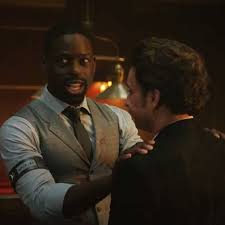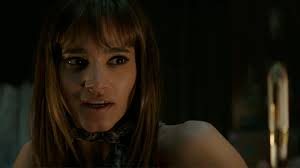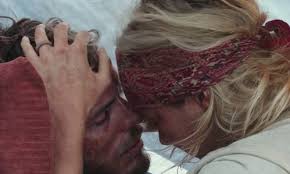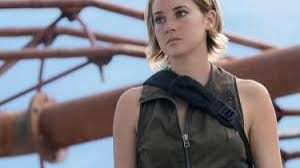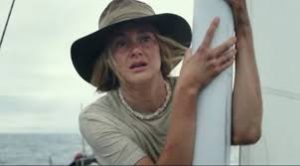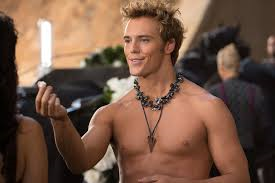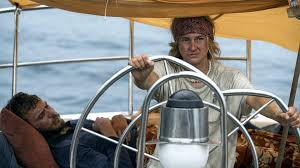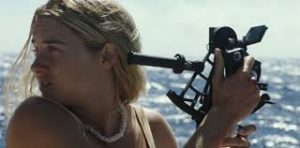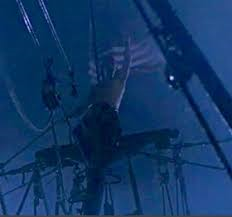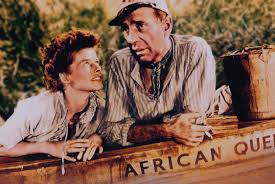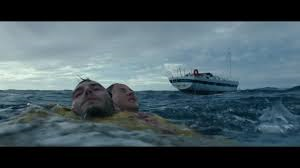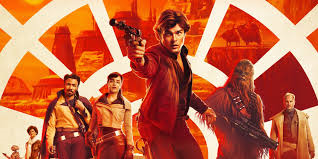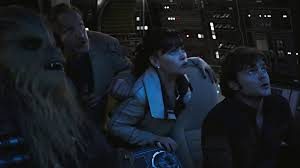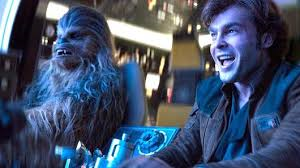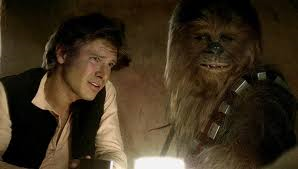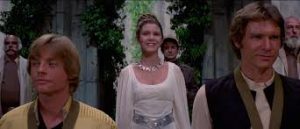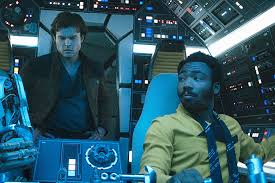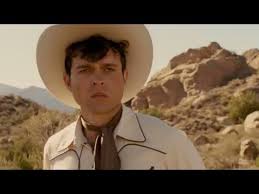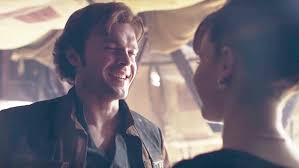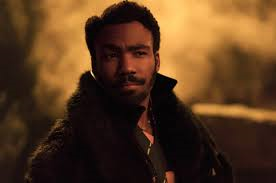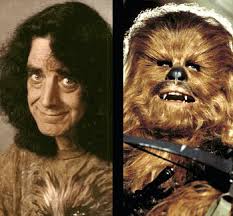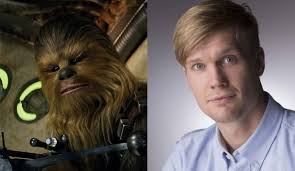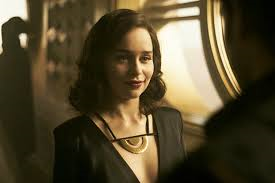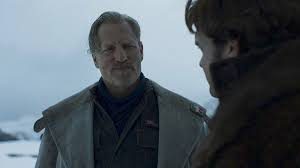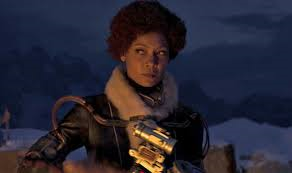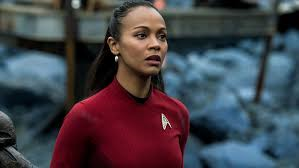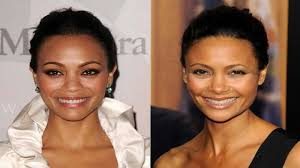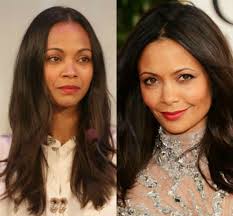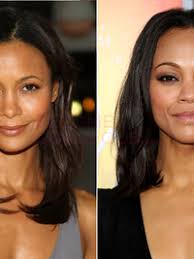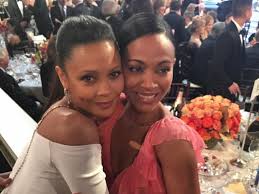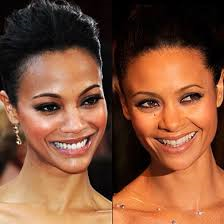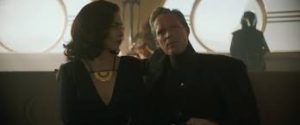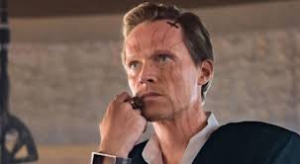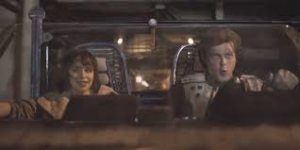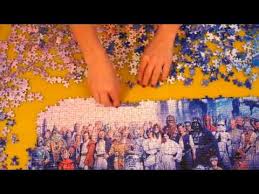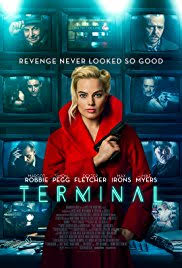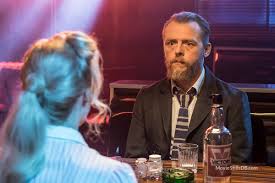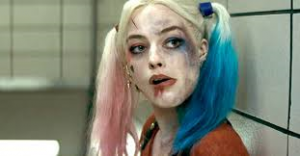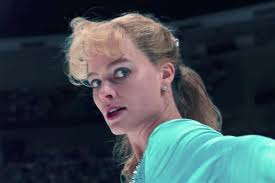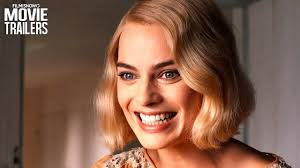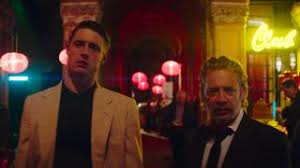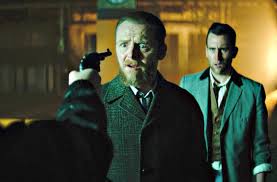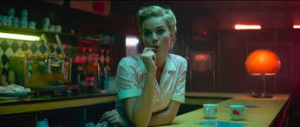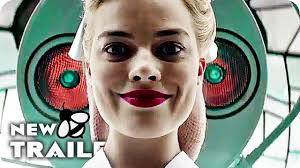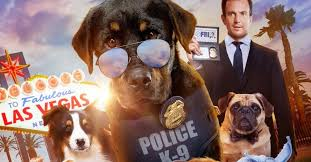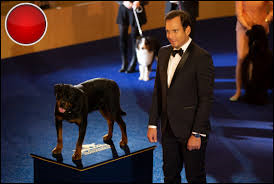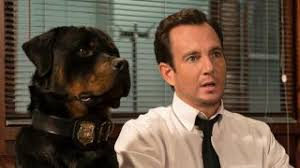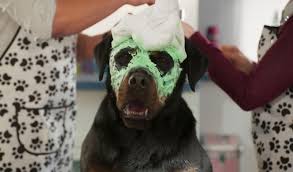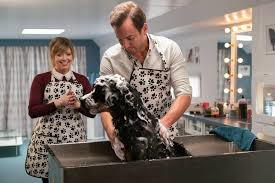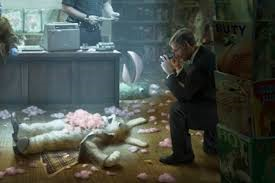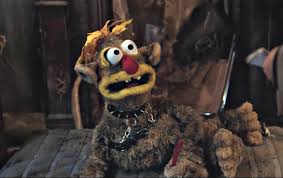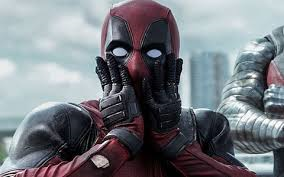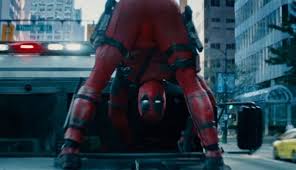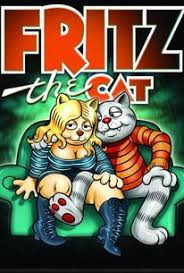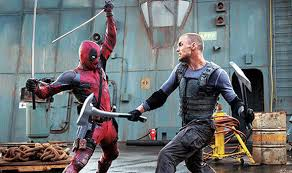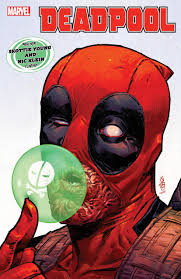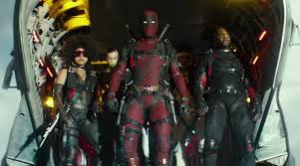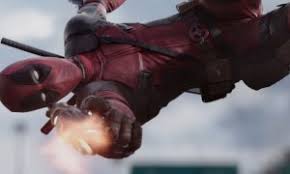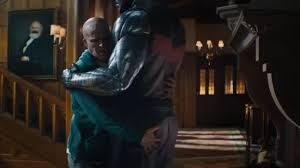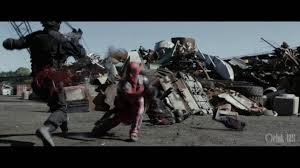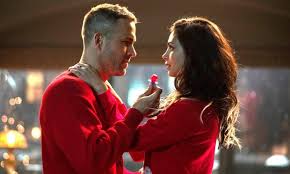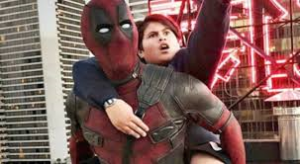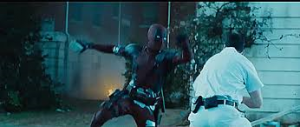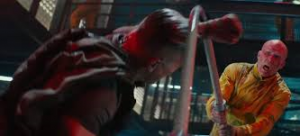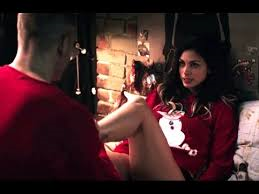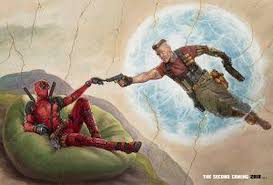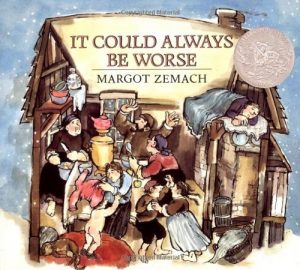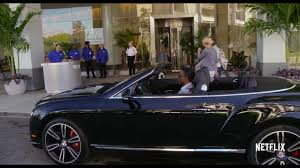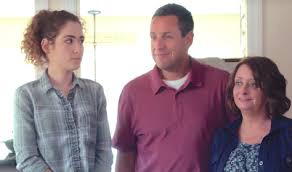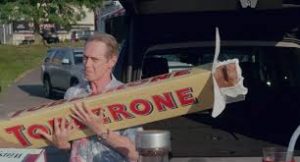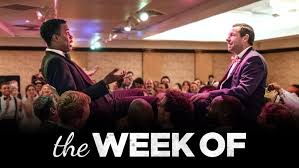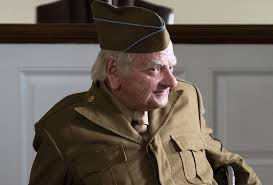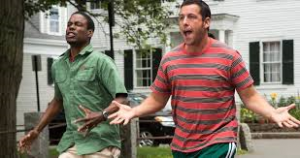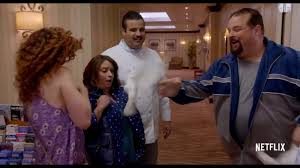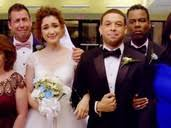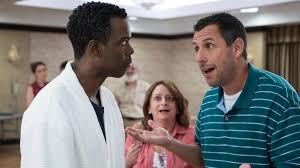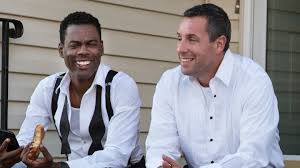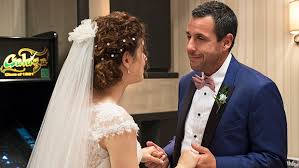AUDIO PODCAST OPTION OF INCREDIBLES 2 REVIEW:
(I apologize for a small audio break in the middle of the review – please just stick with me, it only lasts about 5 seconds.)
SHORT TAKE:
The second act of a two part story which began as The Incredibles in 2004. No more, no less as delightful, fulfilling, family friendly, exciting and fun as the first half.
WHO SHOULD GO:
Absolutely everyone! ESPECIALLY if you are a fan of the first installment. (Though I can not say the same about the short in the beginning, Bao, which has nothing to do with the main movie and which you might want to give a miss. I explain why in a spoiler-filled overview of Bao at the end of this The Incredibles 2 review.) Incredibles 2 VERY child friendly, (Bao not so much).
LONG TAKE:
“And now you know the rest of the story.”
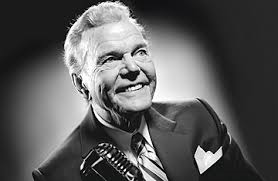 Paul Harvey was a radio personality who used to tell stories on air about little known facts or anecdotes, leaving some key element out until the end – like one about a war hero who turned out to be Lee Marvin, why the passengers on the Titanic didn’t have to die, what really happened to Butch Cassidy and the Sundance Kid – that kind of thing.
Paul Harvey was a radio personality who used to tell stories on air about little known facts or anecdotes, leaving some key element out until the end – like one about a war hero who turned out to be Lee Marvin, why the passengers on the Titanic didn’t have to die, what really happened to Butch Cassidy and the Sundance Kid – that kind of thing. 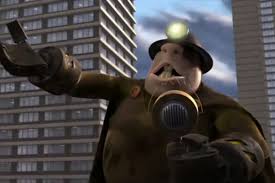 So as I watched the beginning of The Incredibles 2 pick up IMMEDIATELY as
So as I watched the beginning of The Incredibles 2 pick up IMMEDIATELY as 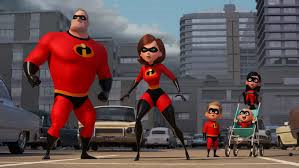 Incredibles (1) had ended, that tag line came to mind.
Incredibles (1) had ended, that tag line came to mind.
If you have not seen Incredibles 2 yet please do not read any further. I don’t want anything I have to say influence your fresh impression of the movie. It’s bad enough trailers give away too much nowadays. I do not want to compound that affront for anyone who has not yet enjoyed the sequel to the original Incredibles. For those of you who HAVE seen I2, READ ON!
SPOILERS – REALLY SERIOUSLY – DON’T READ ANY MORE UNTIL YOU’VE SEEN THE MOVIE!!
Okay for those of you who have already seen the movie I have a confession to make. I was just a little bit disappointed, but really it was my own fault. Please do not get me wrong – I LOVED The Incredibles 2. It’s a terrific movie. But let me give you some examples – for those of us living in the south do you remember the first time you ever saw snow? The experience of seeing it again can never match up to the anticipation you have built up from your original encounter with the frozen fluffy stuff.
OR – When you’re a kid, no matter how amazing Christmas is, there is always a little teensy part of you that is just a little bit disappointed that it’s not as amazing as you expected it to be. Build up and eager high hopes can do that to you. FOURTEEN YEARS worth of anticipation cannot help but handicap the real item when it finally comes along. And, yes folks, it has been 14 years since writer/director Brad Bird hatched the first Incredibles and introduced us to the Parr family of superheroes.
All our favorite characters are back!! And despite the time passage, all the voices are the same: 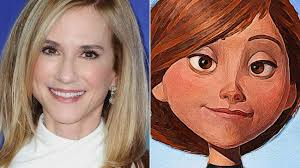 Holly Hunter with her growly, lispish, Texas-twanged Helen,
Holly Hunter with her growly, lispish, Texas-twanged Helen,  Craig T. Nelson, the occasionally bombastic Bob,
Craig T. Nelson, the occasionally bombastic Bob, 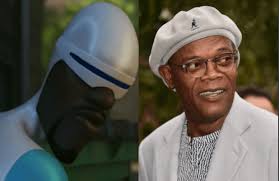 Samuel L Jackson, the smooth crooning voice of Lucius, Sarah Vowell returns as Violet whose vocal mannerisms echo an individual variation on her mom.
Samuel L Jackson, the smooth crooning voice of Lucius, Sarah Vowell returns as Violet whose vocal mannerisms echo an individual variation on her mom.  Jonathan Banks returns as Rick Dickers, the exhausted, put-upon government agent assigned to help hide the existence and whereabouts of the Supers.
Jonathan Banks returns as Rick Dickers, the exhausted, put-upon government agent assigned to help hide the existence and whereabouts of the Supers. 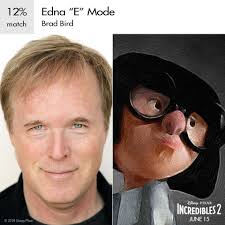 And Brad Bird, the director, writer and father figure to the entire Incredibles Universe returns to voice my all time favorite character –
And Brad Bird, the director, writer and father figure to the entire Incredibles Universe returns to voice my all time favorite character – 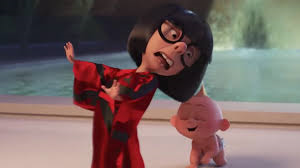 Edna Mode, the adorably abrasive, diminutive costume designer to the Supers, whose own super powers are: mega-confidence, an almost mystical calm, extraordinary talent, and
Edna Mode, the adorably abrasive, diminutive costume designer to the Supers, whose own super powers are: mega-confidence, an almost mystical calm, extraordinary talent, and  a forcefully maternal, protective, preternatural insightfulness into the Supers themselves. She was conceived by Bird as the solution to the eternal question: since when do super powers automatically make you a gifted tailor? Where DO those awesome suits COME from?! AND contrary to popular opinion, according to Bird, himself, he did not create the inimitable “E” from any one or combination of real life designers – at least not consciously. She is simply a mismash of the cultures of Japan and Germany – two, he thought, countries who were very small in relation to their cultural impact – much like Edna herself. Therefore, her house decor is a combo of Japanese and German, as is the clothes she herself wears, her odd accent, and even her personality – swinging wildly from imperturbability to wildly forceful and persuasive as the occasion demands.
a forcefully maternal, protective, preternatural insightfulness into the Supers themselves. She was conceived by Bird as the solution to the eternal question: since when do super powers automatically make you a gifted tailor? Where DO those awesome suits COME from?! AND contrary to popular opinion, according to Bird, himself, he did not create the inimitable “E” from any one or combination of real life designers – at least not consciously. She is simply a mismash of the cultures of Japan and Germany – two, he thought, countries who were very small in relation to their cultural impact – much like Edna herself. Therefore, her house decor is a combo of Japanese and German, as is the clothes she herself wears, her odd accent, and even her personality – swinging wildly from imperturbability to wildly forceful and persuasive as the occasion demands.
Unfortunately, 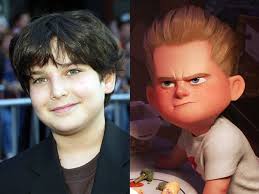 Spencer Fox’ Dash’ boisterous reflection of his Dad’s commanding vocals had to be replaced with the younger
Spencer Fox’ Dash’ boisterous reflection of his Dad’s commanding vocals had to be replaced with the younger  Huck Milner, but you will not notice the difference. Fox is the only one to be replaced. According to interviews and articles the decision seems to have been arrived at from a combination of Fox’ puberty, (like in the lyrics of “Puff the Magic Dragon” warns: “A dragon lives forever, but not so little boys”),
Huck Milner, but you will not notice the difference. Fox is the only one to be replaced. According to interviews and articles the decision seems to have been arrived at from a combination of Fox’ puberty, (like in the lyrics of “Puff the Magic Dragon” warns: “A dragon lives forever, but not so little boys”),  Fox’ committments with his punk band Charley Bliss, and a certain nostalgic ennui Fox had for the entire project – that it was something great he did in his childhood to which he didn’t really want to revisit.
Fox’ committments with his punk band Charley Bliss, and a certain nostalgic ennui Fox had for the entire project – that it was something great he did in his childhood to which he didn’t really want to revisit.
AND NOW FOR SOME SERIOUS SPOILERS – THIS IS YOUR LAST WARNING.
First off, calling it a sequel really isn’t accurate. Incredibles 2 is actually a continuation of the first movie. Literally. We pick up in the first moment of Incredibles 2 after the last second of The Incredibles (1). The Underminer has arrived and the family Parr (the word “par” meaning average) becomes the family of Incredibles. (Anyone notice the name significance before this? Very clever underscoring by Bird, I thought.) They go into action as a group and avert a massive casualty list of people but rack up a lot of collateral property damage in stopping the mammoth runaway drill.
Once again they are unjustly blamed and sent off in disgrace, reinforcing to the public, through the willing accomplices in the media, why Supers were banned to begin with.
Helen is summoned by a Super-Hero-loving industrial magnate,  Winston Deavor, (Bob Odenkirk) and
Winston Deavor, (Bob Odenkirk) and 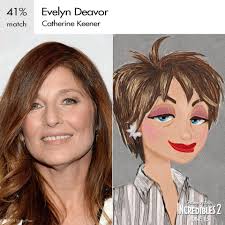 his sister, Evelyn Deavor “Evil Endeavor” – geddit? (Catherine Keener) to be the face the Supers need to become accepted again. For any of you who have seen the trailer, the movie plot largely revolves around Bob adjusting to a Mr. Mom status while Helen goes off to be the poster child for Super Heroes. And the fish-out-of-water aspect to the movie is wonderful – fun, touching and eminently relatable to any parent ever. Bob trades
his sister, Evelyn Deavor “Evil Endeavor” – geddit? (Catherine Keener) to be the face the Supers need to become accepted again. For any of you who have seen the trailer, the movie plot largely revolves around Bob adjusting to a Mr. Mom status while Helen goes off to be the poster child for Super Heroes. And the fish-out-of-water aspect to the movie is wonderful – fun, touching and eminently relatable to any parent ever. Bob trades 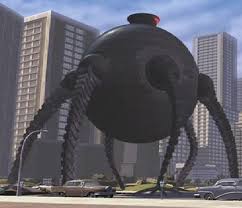 fighting collassus killing machines,
fighting collassus killing machines, 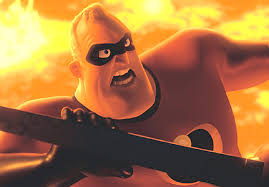 saving people from building fires, and
saving people from building fires, and 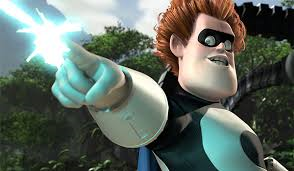 wrestling with super villains for
wrestling with super villains for 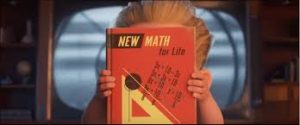 math homework,
math homework,  meals and a
meals and a 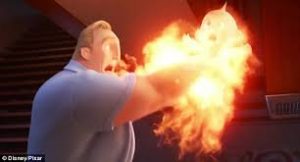 metapowered
metapowered 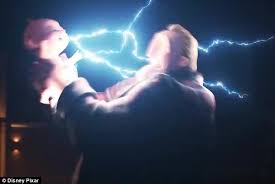 baby – oh yeah and exhaustion:
baby – oh yeah and exhaustion: 
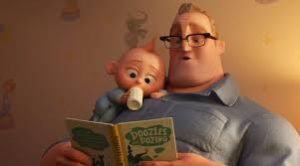
It is the genius of Brad Bird that he creates a reflection of a modern family and places it into a Super Hero framework. The Parrs/Incredibles is a fairly young family – mom, dad, children. The kids cover the spectrum too – early teen, adolescent and infant. One of the things, I believe, which made The Incredibles such a universally loved movie was that people intuited the metaphor. In an interview with Bird prior to the release of the sequel, Bird makes this clear.  Bob, the father, is given incredible strength, as a father must have in one way or another: physically, mentally, and morally, to the best of his ability, he must stand strong in the eyes of those he has sworn to protect.
Bob, the father, is given incredible strength, as a father must have in one way or another: physically, mentally, and morally, to the best of his ability, he must stand strong in the eyes of those he has sworn to protect.  Helen, the mom, stretches in impossible ways, much like your average mother who must be psychologist, chauffeur, chef, teacher, and judge, all while carrying a baby on her hip and breast feeding.
Helen, the mom, stretches in impossible ways, much like your average mother who must be psychologist, chauffeur, chef, teacher, and judge, all while carrying a baby on her hip and breast feeding.  Dash, the adolescent, has just GOTTA MOVE, so is super fast!
Dash, the adolescent, has just GOTTA MOVE, so is super fast! 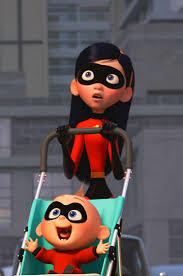 Violet suffers the normal
Violet suffers the normal 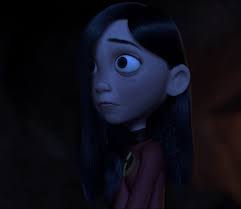 angst teens go through – is standoffish and sometimes wants to disappear, so has the powers of invisibility and force fields.
angst teens go through – is standoffish and sometimes wants to disappear, so has the powers of invisibility and force fields. 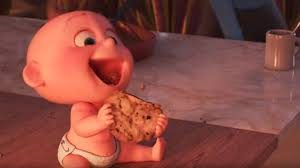 Jack Jack is an
Jack Jack is an 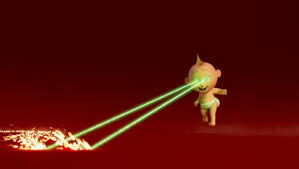 unknown but delightful baby – which pretty much fits the description of every infant.
unknown but delightful baby – which pretty much fits the description of every infant.
Everyone who has ever been in a family, which is, of course, everyone, can relate to one or more of each of these characters. And every family has challenges and threats which come at them, against which they are best advised to confront together.
In what is really only the first half of a 3 hour movie, in the 2004 installment of The Incredibles, Bob comes to understand he has allowed his desire for the limelight to overpower the real center stage he should be occupying – that of Super Hero in his own home. The kids learn their parents really are the heroes in their lives and step up to the plate to emulate and obey their parents. Together they learn this lesson in spades and the family is triumphant.
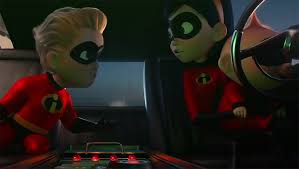 The second half of the movie – aka Incredibles 2 – puts this newfound unity, affection and understanding immediately to the test. A familiar tune, as there is not a day goes by that the family in general is not under attack.
The second half of the movie – aka Incredibles 2 – puts this newfound unity, affection and understanding immediately to the test. A familiar tune, as there is not a day goes by that the family in general is not under attack.
It is (if you’ll excuse the pun) INCREDIBLY refreshing to have a movie where the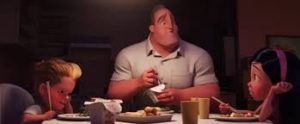 Dad is and wants to be the man of the house, but is still confident enough as the leader to step aside, when that is the right thing to do. That he will do the right and manful thing for his family, EVEN IF, as in this unusual situation, he must temporarily suppress his own natural, and very powerful, normal desires and instincts to protect and provide for his family, to allow someone else to take point.
Dad is and wants to be the man of the house, but is still confident enough as the leader to step aside, when that is the right thing to do. That he will do the right and manful thing for his family, EVEN IF, as in this unusual situation, he must temporarily suppress his own natural, and very powerful, normal desires and instincts to protect and provide for his family, to allow someone else to take point. 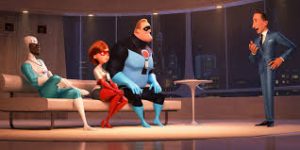 The wife is a considerate partner, without either being submissive or dominating – conferring with her husband on important issues, but being wise enough to leave the final decision up to her husband, knowing and trusting his judgement. The husband is wise enough to put his own needs, wants and desires aside for the good of the Supers in general, sure, but primarily for his own family and his own children. The parents’ first thoughts are for their children – even if it means leaving their own comfort zones, or putting aside their own goals and wants.
The wife is a considerate partner, without either being submissive or dominating – conferring with her husband on important issues, but being wise enough to leave the final decision up to her husband, knowing and trusting his judgement. The husband is wise enough to put his own needs, wants and desires aside for the good of the Supers in general, sure, but primarily for his own family and his own children. The parents’ first thoughts are for their children – even if it means leaving their own comfort zones, or putting aside their own goals and wants.
In other words, the Incredibles have their priorities straight!! And their nom de plume – Parr, the average – points out that this is and should be the structure of every successful family. That every family should aim for this healthy functional dynamic. And that is a wonderful thing to see.
I do have a few quibbles with the plot. This is not meant to be a negative but a hope that the next movie will be even better. They may be smnall quibbles, but they did have 14 LOOOONG years to think of a script and it seems some of these things could have and should have been worked out:
1. The first one dates back to the first installment – Jack Jack got away from Syndrome because he expressed some heavy duty powers: 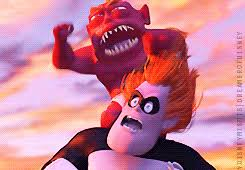 turned into a monster, caught fire,
turned into a monster, caught fire, 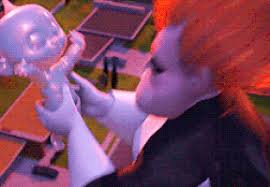 became metal – but at the end of the first movie no one knows he has powers. And in the beginning of the second movie Bob is shocked that Jack Jack has powers when he starts to display them and Helen later makes it clear she didn’t know either. NONE of them saw any of what Jack Jack did to Syndrome? Granted it was a traumatic moment and they were pretty high up in the sky but the Parr family is used to crises and they have super powers!
became metal – but at the end of the first movie no one knows he has powers. And in the beginning of the second movie Bob is shocked that Jack Jack has powers when he starts to display them and Helen later makes it clear she didn’t know either. NONE of them saw any of what Jack Jack did to Syndrome? Granted it was a traumatic moment and they were pretty high up in the sky but the Parr family is used to crises and they have super powers!
2. Their living arrangements. Their house is destroyed by Syndrome’s crashing plane. At the end of the first movie some time seems to have gone by. Violet makes headway with Tony – gets noticeed, he asks her out on a date; Dash has accepted he must restrain his abilities and the family has developed a certain code with him about holding back at events like track meets; there seems to have been some time to adjust, become comfortable with their new found unity and must be living somewhere. But when we see them in the beginning of the second movie they are still living in a second rate government sponsored hotel.
3. The Parrs, at the beginning of Incredibles 2 are broke and unemployed. Bob can’t get a job as a security guard? Bank teller? Dock Worker? Secret service??!! They’ve already run through the insurance money for their house? And don’t tell me Bob wouldn’t have had insurance to cover the unlikely eventuality of a plane falling on his house. He WORKED for an insurance company.
4. The no-show Supers were never addressed. Why did Gazorbeam and Dynaguy not answer the Deavors’ phone when they were under attack? Were they already dead at Syndrome’s hands? The parent Deavors were elderly and the siblings only barely seem to have had time to adjust to running the company, so maybe a year or two? So the timing would be about right. If so, why did no one explain that to Evelyn? The Supers who did not come to their parents aid were likely DEAD, and ironically, at the hands of Syndrome, someone who, like Evelyn, wanted to de-power the Supers for their own selfish, shortsighted reasons.
5. I find it odd that none of the Super Heroes questioned the motives of yet another mega-rich entity interested in hiring them. Wasn’t the last movie about exactly that? Granted it turned out Winston was the real deal, but aside from Lucius assuring them Winston was on the up and up after a single interview, no doubts are shared or intentions dissected by any of a group who should have been extremely sensitive to this scenario, coming so close on the heels of a very similar one from which they just finished extracting themselves.
More of an observation than a critique, this is also kind of a dark movie – more so than the first. Whether you like it or not, and I did like it, there is an element of reality infused into this “kids’” movie. People do die. Ethical and legal debates are had around the Parr dinner table. And there are complex cultural issues to wrestle with, along with physically fighting bad guys. 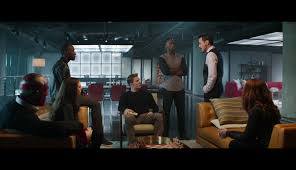 Much like the Sokovia Accords in The Avengers Universe, the ban on Supers smacks of an unjust legalese stemming from an urge to place blame on the easy marks of Super Heroes instead of the real villains. It is easier to rein in people who willingly abide by and enforce the law than it is the criminals who break them.The issue of breaking a law in civil disobedience and leaving her family to save it, are ironies which are discussed and will be of interest to the adults in the audience, but will go over the heads of most of the youngsters. Bird, himself, said in an interview that he eschews the term “kid” movie but simply makes animated films he would enjoy seeing. His is obviously a winning prescription, but it makes for a movie which might lose the attention of younger viewers in places.
Much like the Sokovia Accords in The Avengers Universe, the ban on Supers smacks of an unjust legalese stemming from an urge to place blame on the easy marks of Super Heroes instead of the real villains. It is easier to rein in people who willingly abide by and enforce the law than it is the criminals who break them.The issue of breaking a law in civil disobedience and leaving her family to save it, are ironies which are discussed and will be of interest to the adults in the audience, but will go over the heads of most of the youngsters. Bird, himself, said in an interview that he eschews the term “kid” movie but simply makes animated films he would enjoy seeing. His is obviously a winning prescription, but it makes for a movie which might lose the attention of younger viewers in places.
Which talk of Sokovia Accords and the ban of Supers brings me to the REAL villain of the Incredibles. It’s not really Screenslayer or even Evelyn. It’s the media.
In the aftermath of the Underminer escapade, which bridges the two movies, the visual presence of the Parr family as Incredibles in the mountain of rubble is not portrayed as heroes mitigating and managing a catastrophe for minimal damage, but as the cause of the mess. Sadly, these talking heads, the REAL villains of BOTH movies, are the same media who defined Mr. Incredible in the 2004 movie not as a rescuer, but as someone who ruined a disturbed man’s attempted suicide. This is a typical example of how news bias and “fake news” reports are fashioned – a classic example of what happens in the real world – to give their audience, not news, but their own prejudiced view. These real evildoers are never showcased as such. That might have been an interesting aspect to pursue, especially as it ties in with the bad rap the heroes in The Avengers got in Captain America: Civil War from the misguided and grossly civil-rights-violating Sokovia Accords. But while we see the “news” people at work, either blankly vapid or ginning up anger towards the Supers (without the excuse of being hypnotised), no serious criticism is ever laid at their feet where that blame belongs.
In an interesting note, the actors who voice the main characters – Holly Hunter, Craig T Nelson, and Samuel L Jackson, are given a small intro at the beginning of the movie, mentioning how grateful they are for the patience of the audience over the past 14 years and how glad they are to be working together again as this family of Supers. Fourteen years is not a small span of time and both Ms. Hunter and Mr. Nelson are not exceptions to reflect this span of a half – generation of years between movies. I only mention this because, strangely,  Samuel L. Jackson does not look a DAY older than when he did in the year the first Incredibles came out. He’s in many super hero universes as well:
Samuel L. Jackson does not look a DAY older than when he did in the year the first Incredibles came out. He’s in many super hero universes as well: 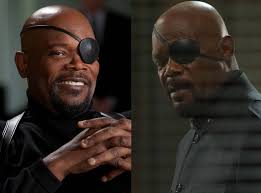 The Avengers and Agents of Shield as Nick Fury, Mr. Glass in Shymalon’s alternate super universe, and here as Frozone, as well as super, almost indestructible characters in movies like
The Avengers and Agents of Shield as Nick Fury, Mr. Glass in Shymalon’s alternate super universe, and here as Frozone, as well as super, almost indestructible characters in movies like 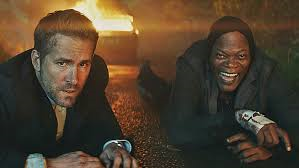 The Hitman’s Bodyguard. And the actor, much like most super heroes — never…. seems…..to age. Hmmmm. Is there something you’re not telling us avid super hero fans Mr Jackson? LOL
The Hitman’s Bodyguard. And the actor, much like most super heroes — never…. seems…..to age. Hmmmm. Is there something you’re not telling us avid super hero fans Mr Jackson? LOL
In conclusion on The Incredibles 2 – I just want to say PLEASE DO NOT WAIT ANOTHER 14 YEARS TO DO A FOLLOW UP FILM!!! We want to know more of — the rest of the story.
Bao
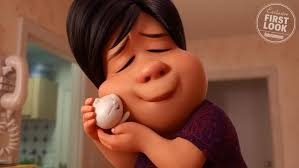 Finally, just as a side note, there is a strange little short at the beginning of The Incredibles 2 called Bao
Finally, just as a side note, there is a strange little short at the beginning of The Incredibles 2 called Bao  (meat or vegetable filled dumpling) about a dumpling which comes to life for a lonely woman,
(meat or vegetable filled dumpling) about a dumpling which comes to life for a lonely woman, 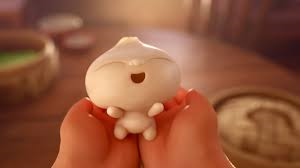 so is spared from being eaten, until it grows to an age where he wants to leave home and marry, at which point the mom EATS the dumpling! The movie has nothing to do with The Incredibles 2 plot, except perhaps as a counterpoint DYSFUNCTIONAL family dynamic, making the strong family of Incredibles look even better. This is some fairly disturbing imagery, softened very little by the revelation that the “dumpling” is merely a reflection of her real life son, an only child, who left his parents to marry. While there is reconciliation with said son in the end, brought about by his understanding father, and acceptance of the non-Asian wife as she learns dumpling making from her mother-in-law, I could not get the unsettling imagery out of my head of the mother willingly eating her child rather than allow him to mature and leave home. This is a short you may want to either get in late enough to avoid or prepare to discuss with your kids later.
so is spared from being eaten, until it grows to an age where he wants to leave home and marry, at which point the mom EATS the dumpling! The movie has nothing to do with The Incredibles 2 plot, except perhaps as a counterpoint DYSFUNCTIONAL family dynamic, making the strong family of Incredibles look even better. This is some fairly disturbing imagery, softened very little by the revelation that the “dumpling” is merely a reflection of her real life son, an only child, who left his parents to marry. While there is reconciliation with said son in the end, brought about by his understanding father, and acceptance of the non-Asian wife as she learns dumpling making from her mother-in-law, I could not get the unsettling imagery out of my head of the mother willingly eating her child rather than allow him to mature and leave home. This is a short you may want to either get in late enough to avoid or prepare to discuss with your kids later.

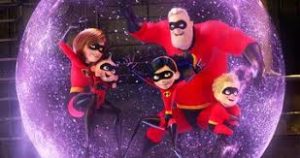
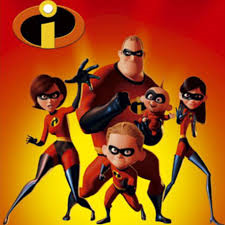
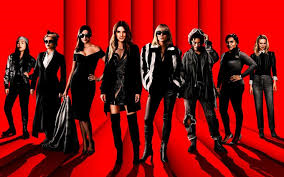
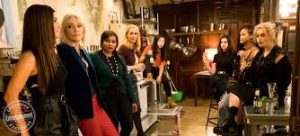
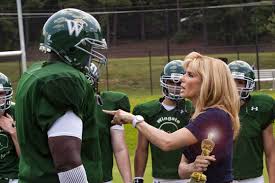
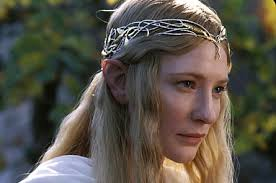
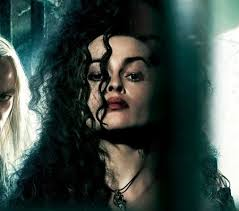
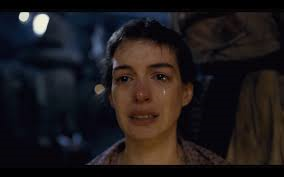
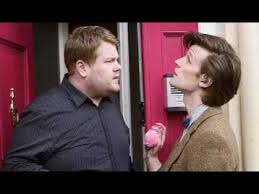
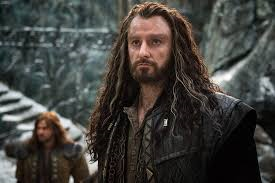
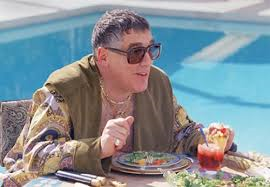
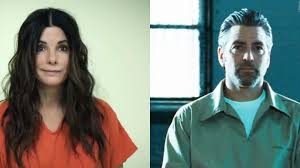
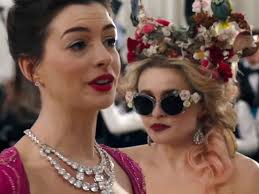
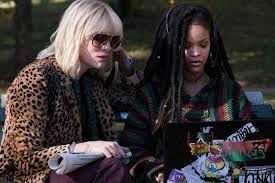
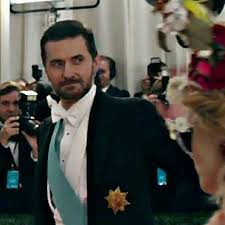
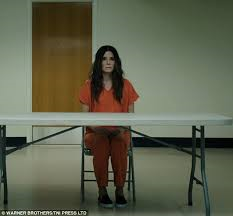
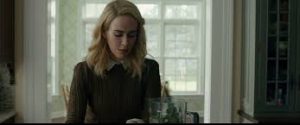


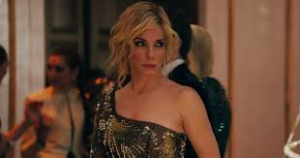
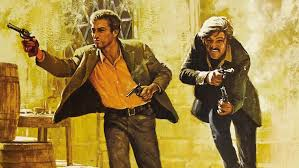
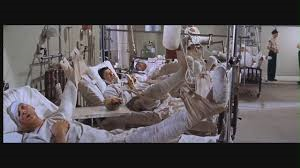


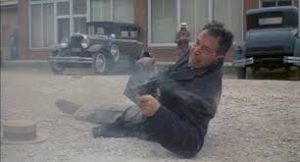

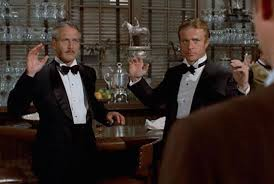

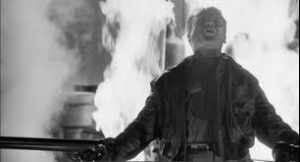
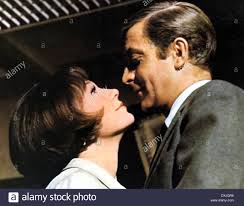
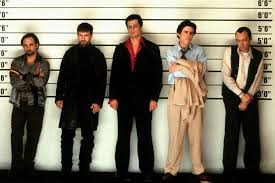
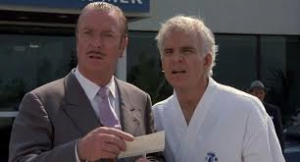
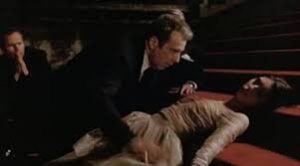
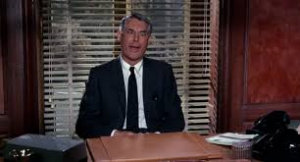
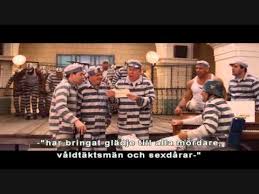
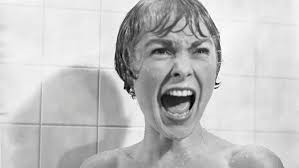
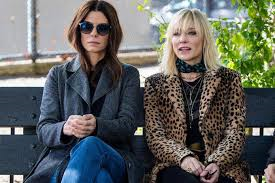


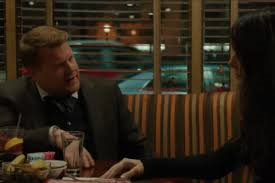

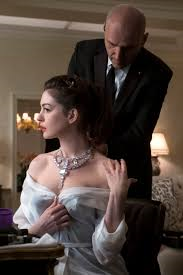
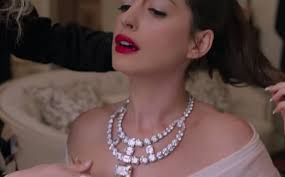

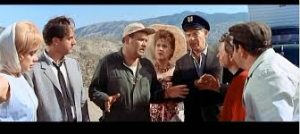

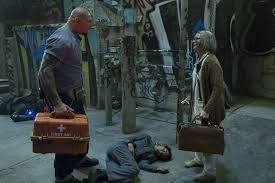

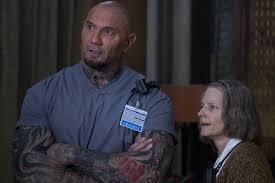
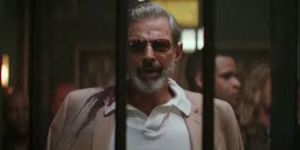
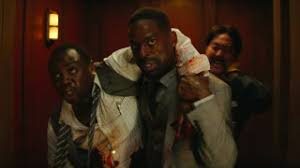
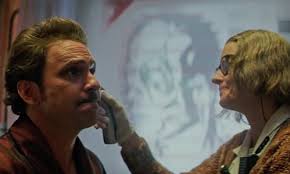
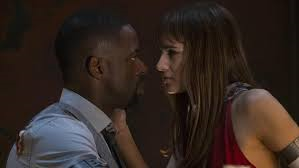
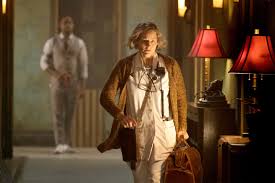
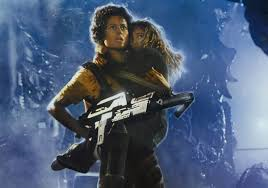
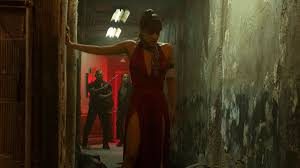
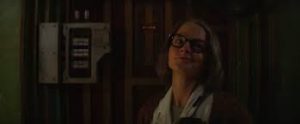
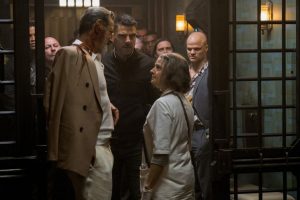 And, Hallelujah, Hotel Artemis does not always take itself completely seriously. Goldblum's character is aware that he is a very bad guy and likely to come to a very bad end. Baustista's character knows he is massive and almost unstoppable but has a gentle and fiercely protective spot for this tiny fragile elderly and essentially kind maternal Nurse.
And, Hallelujah, Hotel Artemis does not always take itself completely seriously. Goldblum's character is aware that he is a very bad guy and likely to come to a very bad end. Baustista's character knows he is massive and almost unstoppable but has a gentle and fiercely protective spot for this tiny fragile elderly and essentially kind maternal Nurse. 